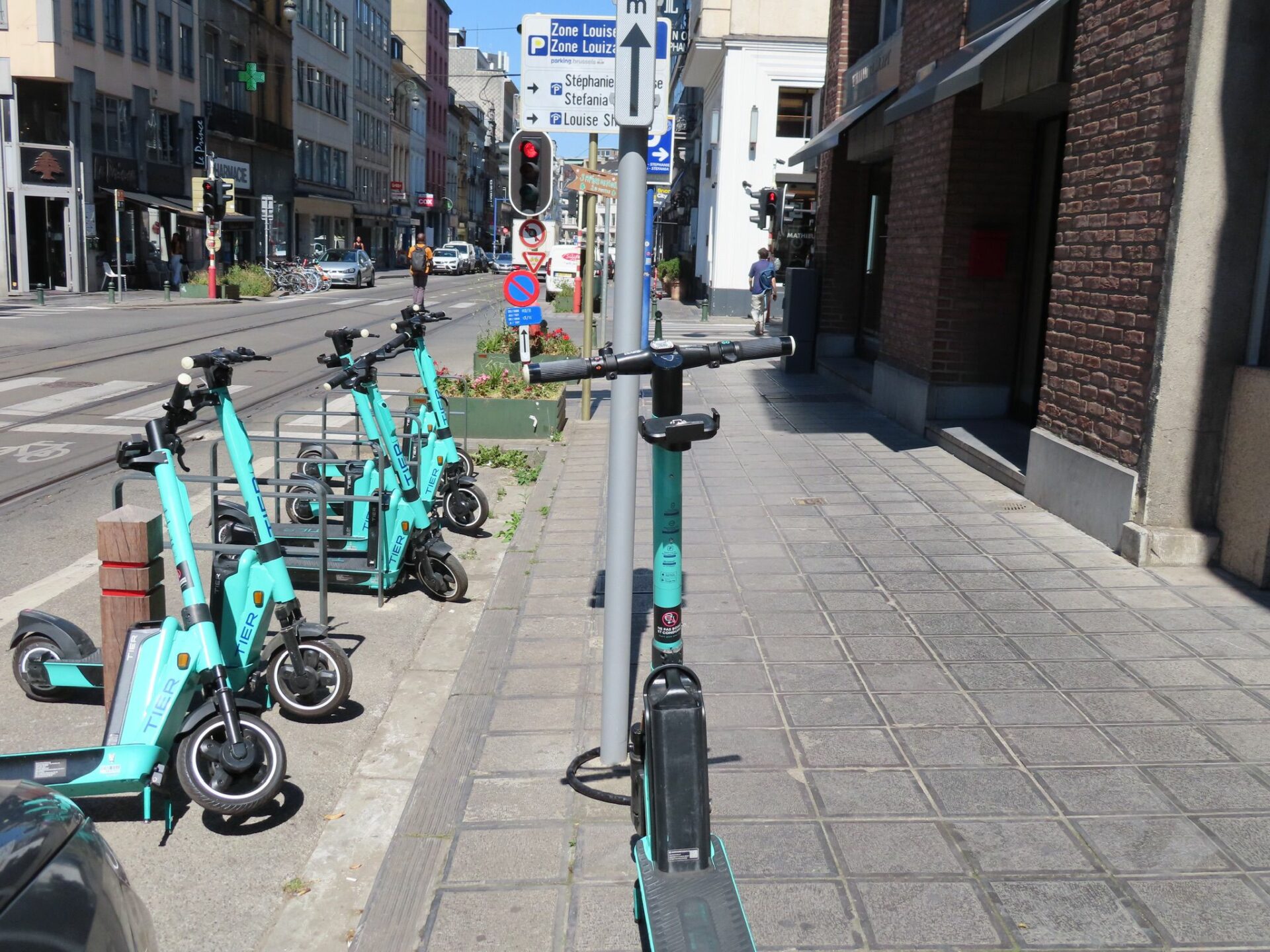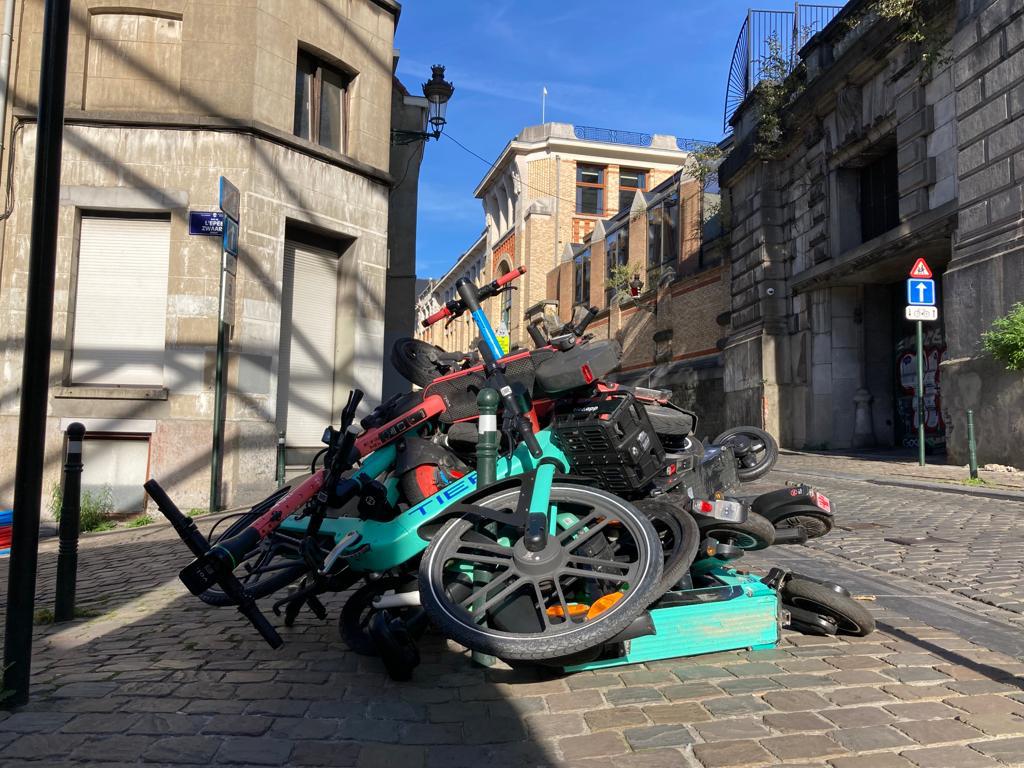After years of delay, Brussels is finally tightening its grip on shared mobility vehicles, including e-scooters, with regulations that set to become clearer.
The draft decree proposed by the Brussels-Capital Region Government on shared mobility vehicles, including e-scooters, bicycles and motorcycles, was adopted at the second reading on Thursday. The law will be stricter and simpler than the one presented last October.
"Shared mobility can be a mobility solution to complement a public transport journey, serve in off-peak hours or in case of exceptional incidents on the lines, but they are currently a source of nuisance and inconvenience," regional Mobility Minister, Elke Van den Brandt, said.
Last summer, new laws specifically on the use of e-scooters in Belgium came into place, with the Brussels Region implementing even stricter measures on top of them, forbidding people under the age of 16 from riding an e-scooter and making riding in pairs and on pavements illegal.
However, many aspects of the decree were difficult to implement in practice, highlighting the need for tougher rules, seen as an ultimatum for operators.
"We want to regulate the use of these vehicles strongly so that other road users are no longer inconvenienced on their route. We will also monitor this closely, and if it appears that the rules are not being followed or are not proving effective enough, we will consider moving to a total ban on shared electric scooters," Van den Brandt stated.
Capping numbers
The new rules are expected to come into place next year. As things stand, the 2024-2027 call for applications will cap the maximum number of e-scooters in the region at 8,000, down from the current 21,000 deployed by eight operators. This is far less than the 15,000 that was initially envisaged in the draft decree.
The number of shared electric bicycles and motorcycles, meanwhile, will be increased in the 2024-2027 call from the current 3,300 to 7,500, and from 170 to 600, respectively. The decree also foresees capping cargo bicycles at 300, totalling a maximum of 16,400 such vehicles.

A rogue e-scooter on Chaussée de Charleroi next to a drop-off zone. Credit: The Brussels Tmes
However, the minister's cabinet stressed that the decree foresees more flexibility on these figures "if needed in the coming decades," and also includes a "zero" option in case the region decided to ban their existence.
A cap will also be introduced for the number of e-scooter operators, bringing it down to two after the 2024-2027 tender (and between 0 and 3 in the decree), instead of two large operators, two medium-sized operators, and small operators with a maximum of 300 vehicles as envisaged in the preliminary draft.
Regulated parking and higher fines
The long-awaited extension of the "drop zones" to the whole of the Brussels Region will come into force from next January, eliminating the distinction between "free" and regulated zones. This will force operators to make it impossible to end a journey outside specific parking zones.
By next summer, more than 800 drop zones will have been installed in Brussels, up from some 450 such zones on regional roads and on municipal roads in April this year. The maximum speed limit of 8km/h will also be extended to more zones across the region.
Finally, the updated decree also imposes higher fines on operators if rules are violated: These will amount to €35 per vehicle in the event of "displacement" and €100 in the event the authorities have to remove the vehicle if it cannot be parked in a drop zone within a radius of 150 metres.
Related News
- Poor e-scooter parking continues to plague City of Brussels
- Brussels' low-income communities receive discounted e-scooter and e-bike trips
"I am counting on the fact that these rules will put an end to the considerable inconvenience that other road users suffer with shared e-scooters and will make our pavements safe for pedestrians and in particular the most fragile among them," Van den Brandt concluded.
The draft decree still has to be submitted to the Council of State before a third and final reading, but at present the government supports it in unison.

